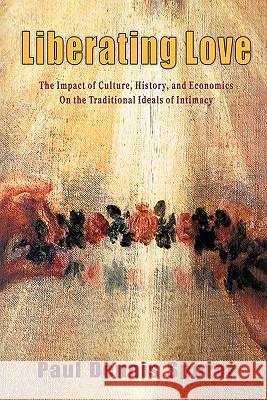Liberating Love » książka
Liberating Love
ISBN-13: 9781932490336 / Angielski / Miękka / 2010 / 140 str.
There is only one place in a civilized society where men and women can see the various ideals about life effectively balanced, and that is in the intimate relationship of marriage. The path to matrimony starts with friendship, but an essential mutual commitment must then occur that deepens the relationship, and takes it from the merely mundane into the transcendent. The love that begins in courtship will find completeness in a partnership that is characterized by devotion, truthfulness, and empathy. Therefore, by marrying, men and women make the deliberate choice to forego some aspects of their former life with the hope of achieving greater happiness by sharing everything with another person. Yet, the decisions that have to be made on this path are sometimes difficult, and the individual may be unable to find advantageous direction and guidance. Liberating Love, by Paul Dennis Sporer, is a unique book that examines the inspired process of building relationships from an historical standpoint, with step-by-step coverage of an ideal marriage, from initial friendship, to weighing social, economic, and emotional variables, to securing lasting mutual enhancement. Thus, the stages of relationship construction are explored, with detailed discussions about the substantive facets of each stage. From these studies it becomes apparent that contented, fulfilling relationships were not only common in the age before the modern era, but expected. In order to understand how effectively our ancestors carefully and conscientiously built their marital relationships, information is drawn from numerous events and lives across history and cultures, demonstrating instances of expert handling of difficult issues in a variety of environments. The personal thoughts people had in relation to intimacy are reconstructed, not only revealing their goals, fears, strengths, and supports, but clarifying the methods they used to deal with loneliness, work, travel, and social pressures. From examining the experiences of others, everyone will find something useful to integrate into their own life. For example, Sporer reflects on the marriages of famous persons such as W. A. Mozart, John Donne, Heinrich Schutz, and St. Elizabeth of Hungary; he analyzes the intriguing array of relationship practices found in a range of countries, such as Britain, France, Germany, Ireland, Italy, Spain, and Switzerland; he also reviews the guidance offered on marriage by Roman Catholic and Protestant theologies. These analyses indicate that past generations found success in marriage, because they were more disciplined, broad-minded, and solicitous compared to the people of today. Whatever the individual aspects of a marriage situation, a foundation was established upon which a strong relationship could be built. Men and women often proceeded along a course guided by objective thinking, with a flexible and innovative use of resources. Emotional closeness could readily be obtained through the network of family relations, which was traditionally governed by customs arising from a locally modified form of the universal European "spirit." In this environment, total freedom of association was guaranteed, and people could choose their spouse without interference. It is clear that married couples were also more contented about their place in society, because their status was increased through the empowerment of a cooperative partnership. Indeed, both spouses became stronger than before their marriage. Only within this framework can the ideal of love truly be liberated. Individuals today can learn much from the wisdom that aided the formation of the relationships of our ancestors. Liberating Love is an invaluable source of ideas that can help modern men and women comprehend critical aspects of intimate relationships, for their own benefit and that of others.











